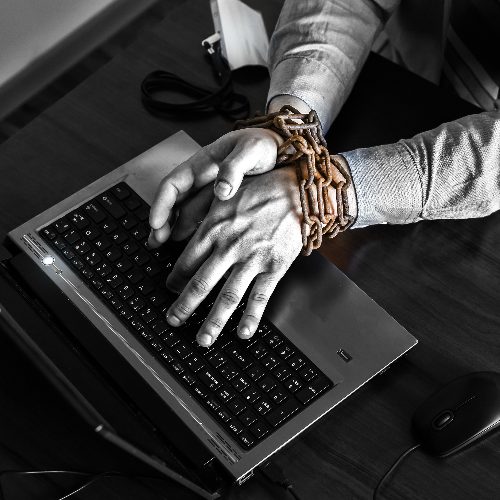
Finding The Balance: How to Disconnect From Work
Leave the Work at Work
You’ve probably heard of the phrase, “Leave the work at work.” Simple and to the point, these words apply both physically and mentally: not only do you need to keep related activities to the workplace, but you also need to clear your mind of work, too.
However, some people find it difficult to keep work from encroaching on their free time. For example, they’re liable to check and respond to work emails outside of office hours, think about work tasks during their personal time, and feel stressed or anxious about work, even when they’re not in the office.
It might be even more difficult if they’re working remotely, especially from home. After all, it’s easy to lose track of time to the point where you continue to work during your off-hours.
The lines between work and personal life can become blurred for the worse. If left unaddressed, this can lead to decreased productivity, strained relationships and burnout.
Striking A Balance
To establish a healthy work-life balance, it’s important to adhere to the following tips:
- Set Boundaries
You have a defined set of work hours which you need to stick to. Once you clock out, though, it’s time to “leave the work at work” and enjoy your off-hours.
Avoid carrying out your tasks, checking business emails or taking work calls outside of these hours. If need be, establish boundaries with your colleagues so that they know when they can or cannot contact you.
- Make The Workspace Work For You
A dedicated workspace at the office or in your home can help you ease into a working state frame of mind without any distractions. However, it can be easy to remain in that space – and, in turn, this working mindset – for long periods of time.
For example, you may have logged off your work communication channels once your shift has ended, but you still find yourself exchanging emails with your colleagues about a project for the next hour or so.
Another example: you have a lunch break of 60 minutes, but you spend half or all of that time eating at your desk. At worst, you overlook eating and unwinding entirely in favour of doing minor work-related tasks during this time.
Whether you’re clocking out or needing a break, switch off your equipment and walk away from your workspace. That way, you’re leaving work behind, both physically and mentally.
- Make The Transition
It can be difficult to make the transition from “work mode” to “relax mode”. To make this transition smoother and easier, try developing a few wind-down rituals.
Going from typing on a laptop to reading a book, shifting from hearing voice notes to listening to music, or switching from compiling to-do lists to writing in your journals are good places to start. These can provide a positive boost to your mood, alleviate stress and ease you into a relaxed state of mind.
Try to incorporate a few simple physical activities as well. These can range from taking a walk to your favourite park and fixing yourself a healthy snack in the kitchen, to meditation, yoga, gyming or practising yoga exercises.
- Practise Self-Care
It’s understandable that you want to showcase your dedication, perseverance and smarts at work, but you shouldn’t do so at the expense of your health. Yes, you go above and beyond to sacrifice your weekends in order to meet a deadline, but it means you will be operating at only 50% for the rest of the work week, which can negatively impact both your career and personal life.
Prioritise making time for activities that recharge you and bring you happiness. If having a bubble bath, lounging on the couch, watching TV or playing your favourite video game ups your comfort and fun levels in your off-hours, then consciously make the effort to do so.
Spending time with your family and friends, going out to the newest restaurant or cinema, booking a holiday, or pursuing your hobbies like painting, bird-watching or beach-combing can rejuvenate you and give you a new lease on life.
Switch Off to Switch On
By striking an effective work-life balance, you can improve your overall well-being. Not only will you be able to give work the attention it deserves, but you will also be able to disconnect from it easily so that you can enjoy your personal time more fully and be more present in all aspects of your life.
Remember, all work and no play can make you a dull person!
